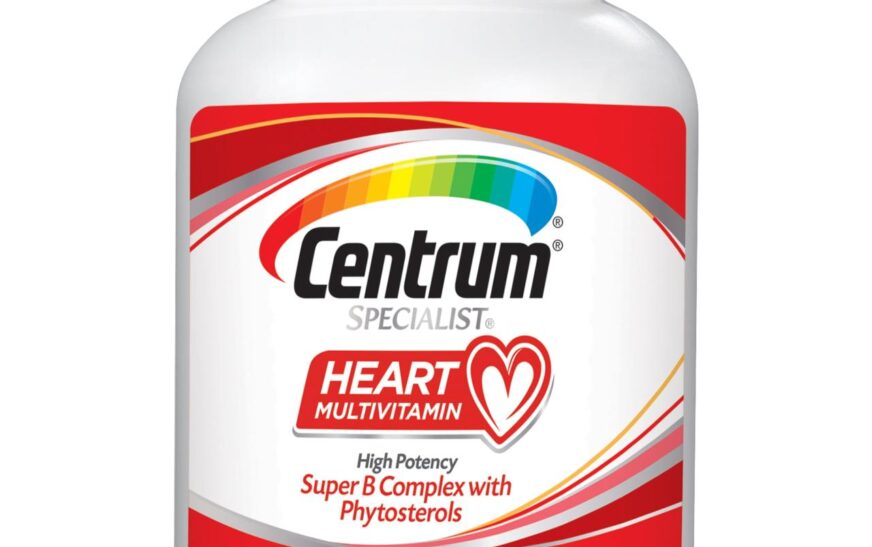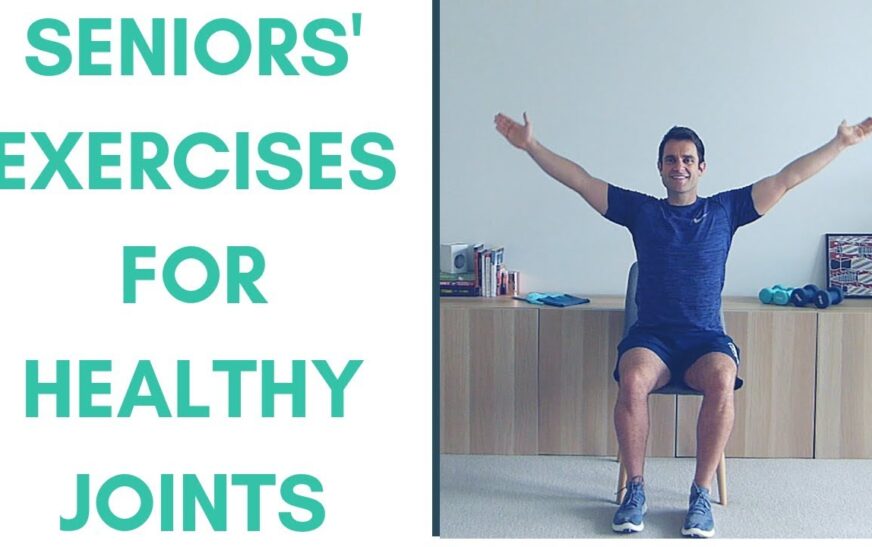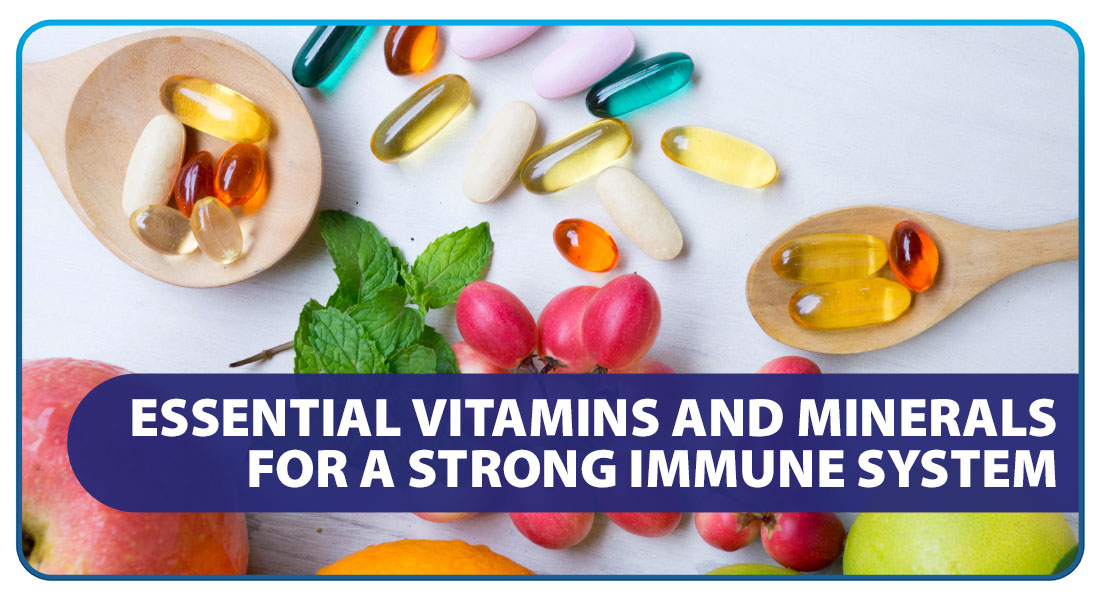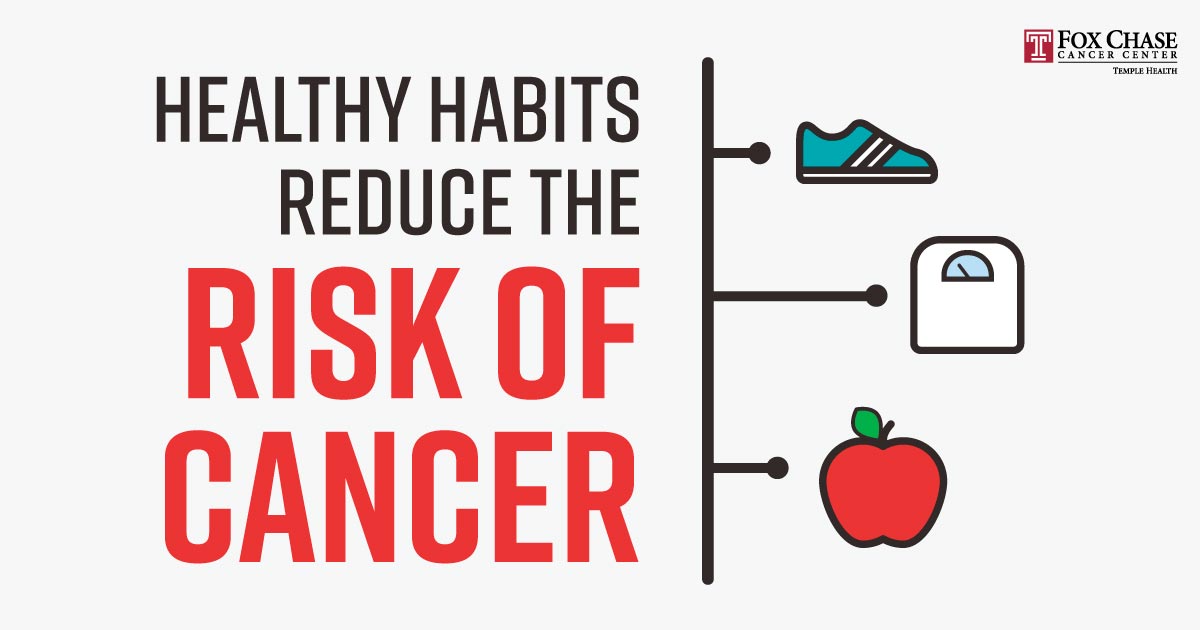Boost Physical Health Quickly sets the stage for a journey towards holistic well-being, exploring the transformative power of exercise, nutrition, sleep, and stress management.
Delve into the realms of fitness, nutrition, rest, and mental wellness as we uncover the secrets to enhancing your physical health rapidly and effectively.
Benefits of Regular Exercise
Regular exercise plays a crucial role in boosting physical health quickly. It offers a wide range of benefits that contribute to overall well-being, including weight management, improved cardiovascular health, and enhanced mental wellness.
Types of Exercises
- Aerobic exercises such as running, swimming, and cycling help in improving cardiovascular fitness and burning calories.
- Strength training exercises like weightlifting and resistance training help in building muscle strength and endurance.
- Flexibility exercises such as yoga and Pilates improve flexibility, balance, and posture.
- High-intensity interval training (HIIT) combines short bursts of intense exercise with periods of rest and is effective for burning calories and improving fitness levels.
Managing Weight
Regular exercise, especially a combination of aerobic and strength training, helps in burning calories and increasing metabolism. This leads to weight loss and maintenance, reducing the risk of obesity-related health conditions.
Improving Cardiovascular Health
Engaging in regular physical activity strengthens the heart muscle, improves blood circulation, and lowers blood pressure. This reduces the risk of heart disease, stroke, and other cardiovascular conditions.
Enhancing Mental Well-being
Exercise releases endorphins, also known as “feel-good” hormones, which help in reducing stress, anxiety, and depression. It promotes better sleep, boosts self-esteem, and enhances overall mental health and cognitive function.
Nutritious Diet for Physical Health: Boost Physical Health Quickly
Eating a balanced and nutritious diet is crucial for quickly enhancing physical health. A well-rounded diet provides the necessary nutrients to support overall well-being, boost immunity, and increase energy levels.
Key Nutrients for Physical Health
A nutritious diet should include a variety of key nutrients essential for optimal physical health. These nutrients include:
- Protein: Essential for muscle repair and growth, as well as overall body function.
- Healthy fats: Provide energy, support cell growth, and help with nutrient absorption.
- Complex carbohydrates: A great source of energy and essential for brain function.
- Vitamins and minerals: Play a crucial role in various bodily functions, including immune system support and energy production.
Hydration and Physical Health
Proper hydration is vital for maintaining physical health and overall well-being. Staying hydrated helps regulate body temperature, aids digestion, and supports nutrient transportation throughout the body. To maintain proper hydration levels, it’s important to:
- Drink an adequate amount of water throughout the day, especially before, during, and after physical activity.
- Monitor urine color to assess hydration levels – clear or light yellow urine indicates proper hydration.
- Incorporate hydrating foods such as fruits and vegetables into your diet.
- Avoid excessive consumption of sugary beverages and caffeinated drinks, as they can lead to dehydration.
Quality Sleep and its Impact
Quality sleep is a crucial factor in promoting quick physical health improvements. It plays a significant role in overall well-being, affecting not only your physical health but also your mental and emotional health. Let’s delve into the importance of quality sleep and its impact on your journey towards better physical health.
Significance of Quality Sleep
Quality sleep is essential for the body’s recovery and repair processes. During sleep, the body releases growth hormones that aid in muscle repair and growth. Lack of quality sleep can disrupt these processes, leading to slower recovery times and decreased physical performance.
Additionally, adequate sleep is vital for the regulation of hormones that control appetite and metabolism. Poor sleep habits have been linked to weight gain and an increased risk of obesity, which can have negative implications on your physical health.
Moreover, quality sleep is crucial for cognitive function, mood regulation, and overall energy levels. A well-rested body and mind are better equipped to handle the physical demands of exercise and daily activities.
Tips for Improving Sleep Quality, Boost Physical Health Quickly
- Establish a consistent sleep schedule by going to bed and waking up at the same time every day, even on weekends.
- Create a relaxing bedtime routine to signal to your body that it’s time to wind down, such as reading a book or taking a warm bath.
- Avoid stimulants like caffeine and electronics close to bedtime, as they can interfere with your ability to fall asleep.
- Make sure your sleep environment is conducive to rest, with a comfortable mattress, pillows, and a cool, dark room.
- Engage in regular exercise, but avoid intense workouts close to bedtime, as they can disrupt your sleep patterns.
Connection Between Rest and Muscle Recovery
Adequate rest is essential for muscle recovery after physical activity. During sleep, the body repairs and rebuilds muscle tissue that has been broken down during exercise. This process is crucial for strengthening muscles and enhancing overall physical performance.
Without proper rest, the body may not have enough time to complete the muscle repair process, leading to increased risk of injury, muscle fatigue, and decreased exercise performance. Quality sleep allows your muscles to recover efficiently, ensuring that you can continue to progress in your physical health journey.
Stress Management Techniques
Stress can have a significant impact on our physical health, leading to issues such as high blood pressure, digestive problems, and weakened immune system. Implementing effective stress management techniques is crucial for improving overall well-being.
Mindfulness Practices
Practicing mindfulness techniques such as meditation and deep breathing exercises can help reduce stress levels. These practices allow us to focus on the present moment, letting go of worries about the past or future. By incorporating mindfulness into our daily routine, we can better manage stress and promote physical health.
- Engage in daily meditation sessions to calm the mind and reduce stress. Find a quiet space, sit comfortably, and focus on your breath or a positive mantra.
- Practice deep breathing exercises to activate the body’s relaxation response. Inhale deeply through your nose, hold for a few seconds, and exhale slowly through your mouth.
- Take short mindfulness breaks throughout the day to check in with your thoughts and emotions. This can help prevent stress from building up and impacting your physical health.
Physical Activity for Stress Relief
Engaging in regular physical activity is another effective way to manage stress and improve physical health. Exercise releases endorphins, also known as “feel-good” hormones, which can help reduce feelings of anxiety and stress.
- Include activities such as yoga, walking, or jogging in your routine to relieve stress and promote relaxation.
- Join group fitness classes or sports teams to socialize and stay active, which can further reduce stress levels.
- Set realistic fitness goals and track your progress to stay motivated and combat stress effectively.
Last Point
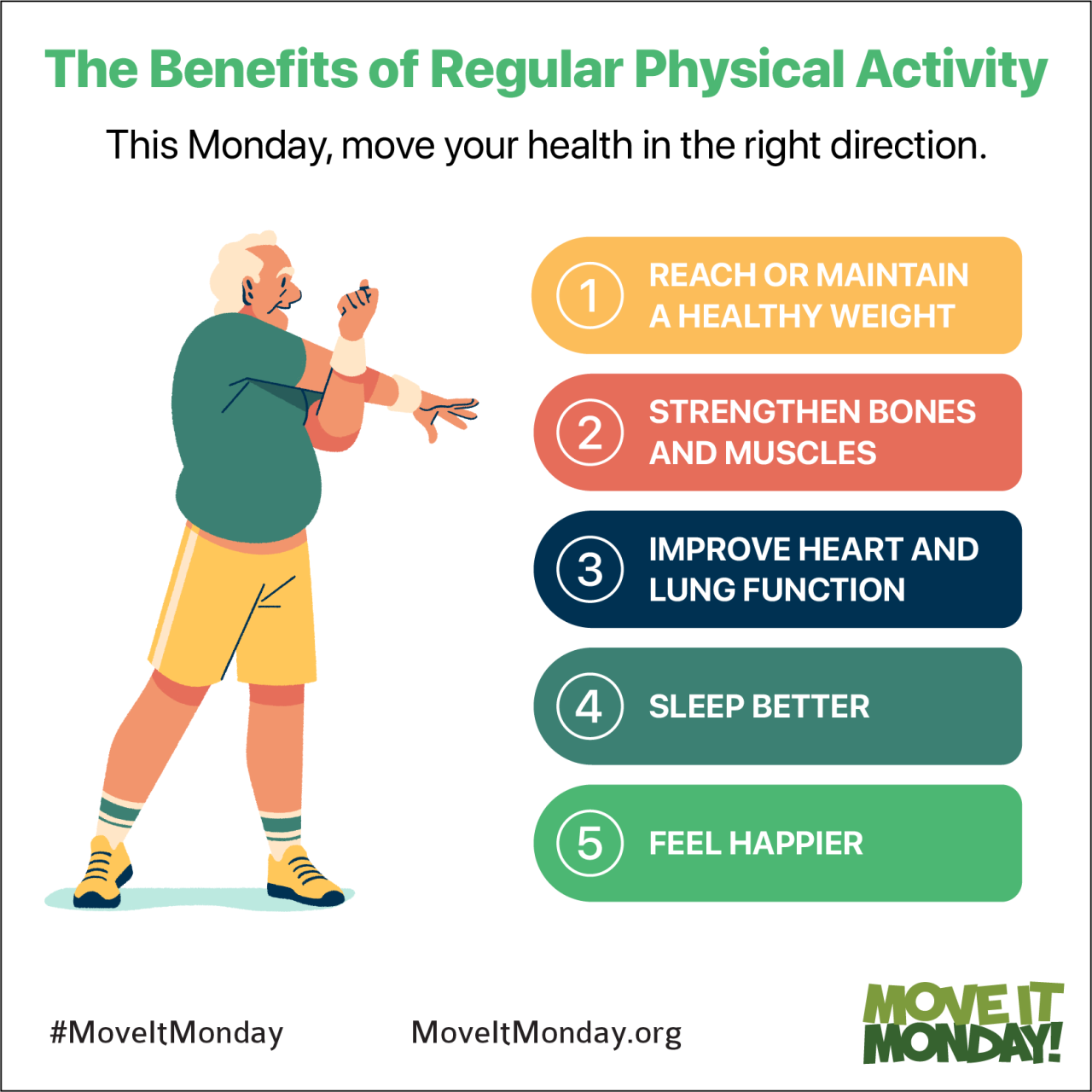
Embark on a path to vitality and vitality as you embrace the principles of regular exercise, a nutritious diet, quality sleep, and stress management to boost your physical health quickly and sustainably.
Helpful Answers
How often should I exercise to see quick results?
Consistency is key. Aim for at least 150 minutes of moderate-intensity exercise per week for noticeable improvements.
What are some essential nutrients for boosting physical health?
Key nutrients like Vitamin C, Vitamin D, and Omega-3 fatty acids play crucial roles in enhancing immunity and energy levels.
How can I improve my sleep quality?
Establish a regular sleep schedule, create a relaxing bedtime routine, and ensure your sleep environment is conducive to rest.
What relaxation techniques are effective for managing stress?
Practices such as meditation, deep breathing exercises, and mindfulness can significantly reduce stress levels and improve overall well-being.


